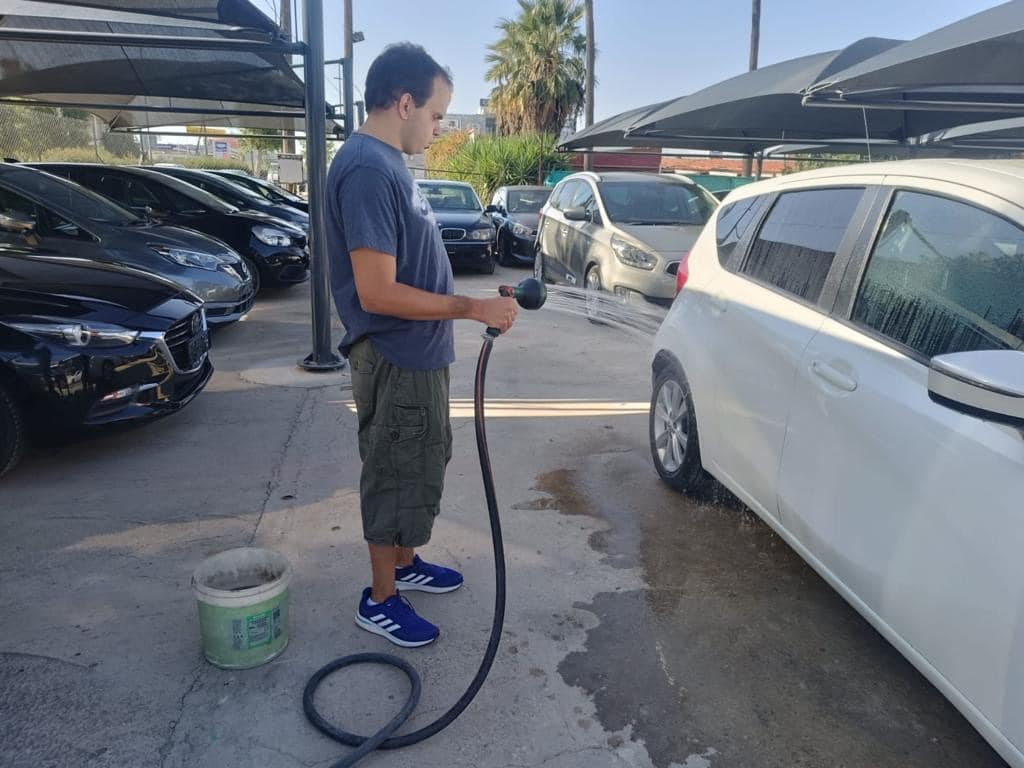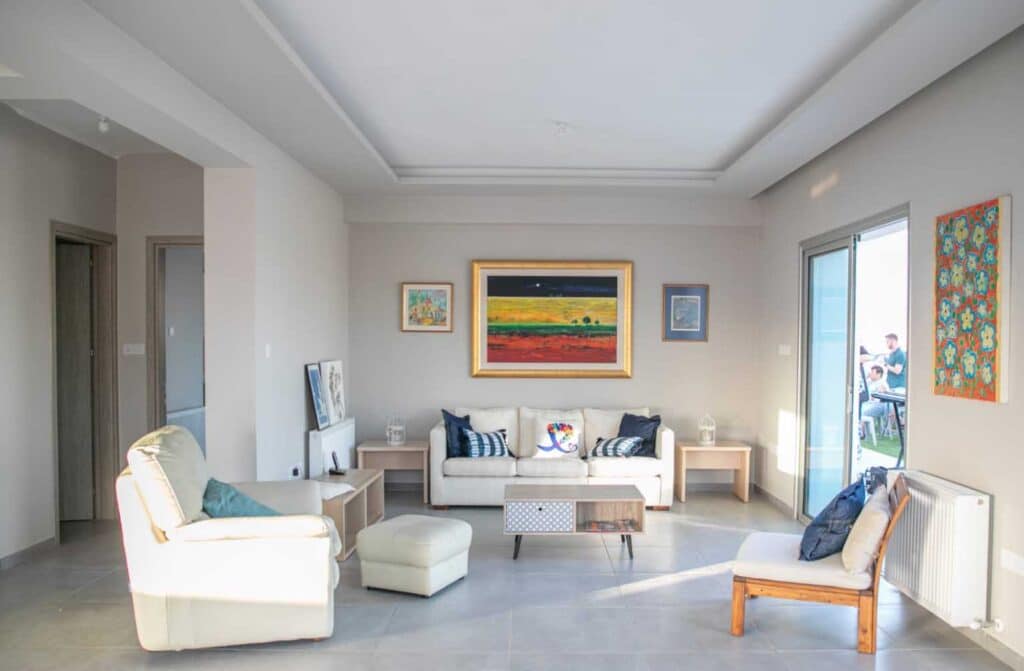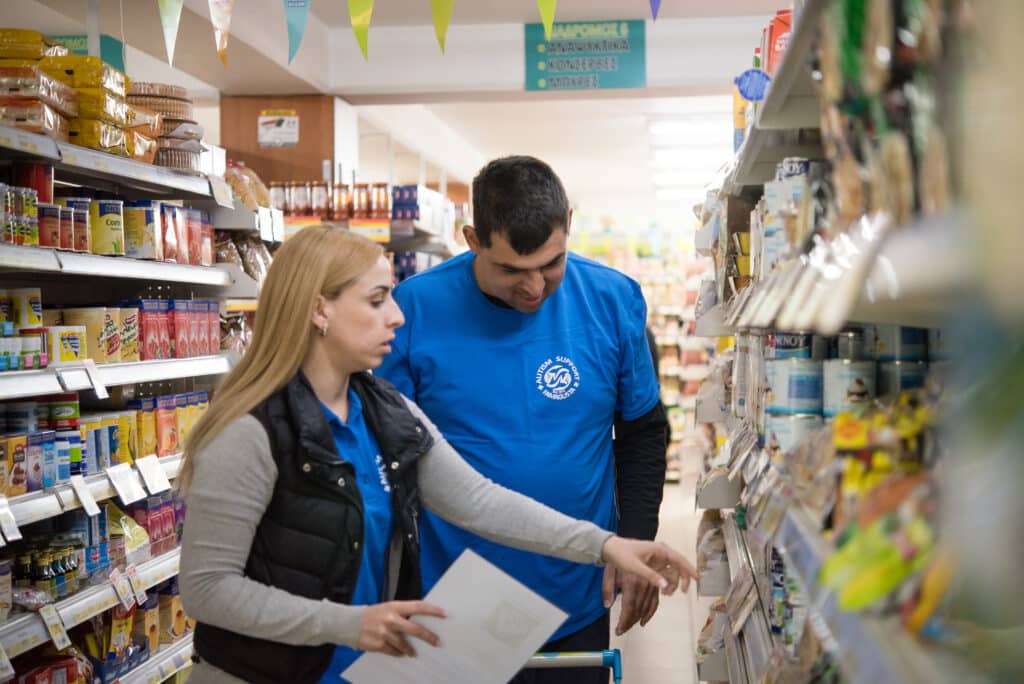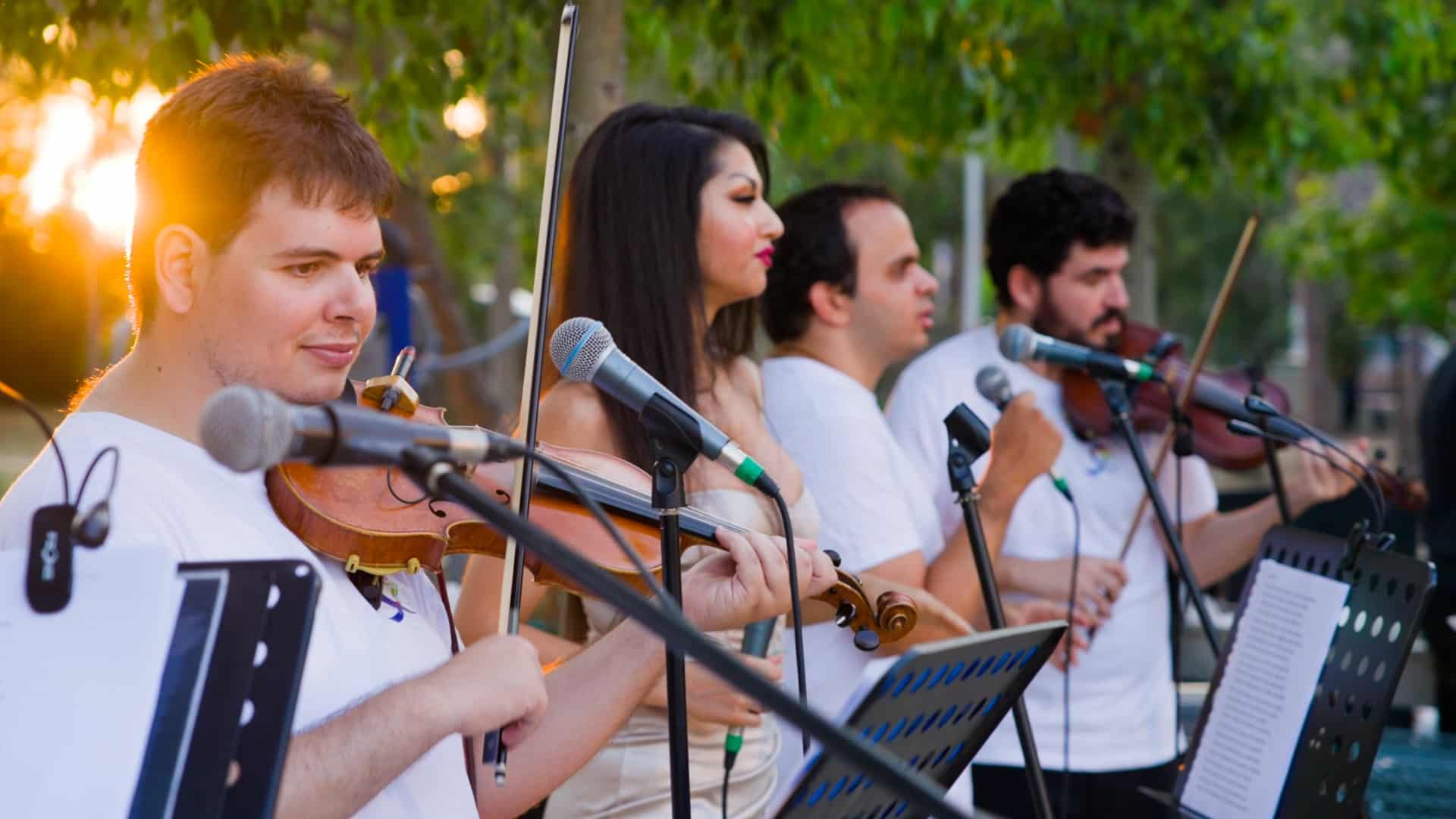The very worst is the lack of integrated care for the over 21s
By Crissy Alexander
April 2 is coming up. Declared World Autism Day by the United Nations, it’s aim is to create awareness of the needs of the autistic community around the world.
Talk to any family member of a person with autism, however, and they will usually roll their eyes.
“Every day is autism day in our world,” is usually the first response. “What about the other days of the year?” is the likely second.
Spreading awareness is, of course, a good thing, but on April 2 as buildings in Cyprus “light it up blue” in solidarity (blue being the color of autism apparently) and events are held to mark the day, families of autistic people are screaming for to be heard.
Resources in schools are inadequate, adult diagnoses impossible to get, health care professionals with autism expertise don’t exist, the over 21s are in crisis, and there is a chronic lack of day programmes and supportive living facilities.
There is, however, some good news. A landmark agenda is now being finalised to improve the lives of autistic people in Cyprus and it is hoped a five-year autism plan will be announced by the government shortly. The Department for Social Inclusion for People with Disabilities, under the social welfare deputy ministry, is leading the project and asked professionals, NGOs and stakeholders to participate to identify immediate needs.

Family-run NGOs are setting up work and day programmes, advocating for social inclusion, and creating independent living opportunities
The agenda includes collecting data on the number of autism cases in Cyprus, improving educational resources, addressing health challenges, independent and supportive living and supporting the creation of job programmes.
This is, of course, good.
The bad is that it took government this long to take note of the needs of the autistic population and if things don’t move quickly a mental health crisis is ahead.
There is no doubt autism is on the rise. Nursery schools on the island are reporting record numbers of young children on the spectrum. Educational provisions and early intervention programmes are, therefore, obviously a concern.
The bad is also that educational resources are inadequate. Families are struggling as there is very little support at the secondary level and special schools are not appropriate placements for all on the spectrum.
The stark reality is that over 21s with autism have little or no support. They leave school and enter a vacuum where there are no day programmes and no job opportunities and they stay at home with heightened frustrations and despair.
What is the government doing?
The autism community is placing hope on the autism agenda currently being finalised and the promise of a five-year plan.
It is also placing hope on President Christodoulides’ own pledge before being elected last year. He stated firmly that he was concerned about what happens to the over 21s who leave school and have nowhere to go.
Panayiotis Savvides is an activist and parent to two teenage boys on the autism spectrum.
“For the first time we have a president who understands the issues. He gets it. At one debate before the presidential elections last year he talked about inclusive education and what happens to the over 21s. It was not in answer to a debate question, he went there himself. Again, he gets it. But we are not seeing any serious initiatives on funding autism.
“The government funds the Christos Steliou Ioannou Foundation at 100 per cent – this is predominantly for the Downs Syndrome community and costs more than €2.5 million per year. But there has been no discussion on how the Christodoulides government will fund autism support.”
The president, says Savvides, is fully aware that the public school system fails autistic kids at every level. There is no expertise, no resources and little support. Many go to the special school because there is nothing else, not because it is a right fit.
“The special school, however, is a robust system of teachers and therapists which is well-funded and which can go till 4pm,” says Savvides. “Then your kid leaves school and this all falls away. Then there are very few options or there is nothing.”
Savvides is planning to set up a day programme himself because there is no current one to meet the needs of his sons when they leave school.

One of the two houses for the over 21’s with autism
Parents like Savvides are taking matters into their own hands to secure a future for their kids. They are creating programmes, starting up NGOs and lobbying for change. But for every parent like Savvides, there are hundreds who cannot do this and wait for the government to act. The best they can hope for is government support for the parent-driven initiatives taking place around the island.
Chriso Prodromou, with other parents and friends, founded the NGO Autism Support Famagusta in 2013 and in 2019 started the Smile Project Day Centre for autistic young adults like her son Stephanos.
The government helps the Smile Project with 30 per cent of running costs, the rest is from community fundraisers and private donations. Obviously sustaining this is a huge challenge.
“We need 100 per cent support so we can focus on enrichment and expanding programmes and not on raising money,” says Prodromou.
Her biggest challenge, however, are the medical issues that plague Stephanos and the lack of medical support available in Cyprus.
“The reality is there is a huge increase in autism cases and the needs are not being met,” she says.
“We accept the autism diagnosis but want answers to why there are violent outbursts. Medical professionals tell us ‘it’s autism’ but it’s not the autism we are fighting every day, it’s the self-harming behaviours.”
She says a tough day for Stephanos starts with “bad noises” which the whole family recognises and which then escalate until he starts hitting himself. This can last several days.
“We are alone with this,” says Prodromou. “Many families in Cyprus are alone with this.”
She says what is needed in Cyprus is a medical rule-out process. This means extensive testing to rule out all possible causes of health problems. It happens in other countries and involves a few days in a clinic with doctors who are familiar with the problems that often plague this community.
Prodromou is part of the taskforce created to formulate a government autism agenda.
Meanwhile Stephanos attends the Smile Famagusta day programme that his family helped set up and has many happy, good, productive days.
Obviously not all families can set up day programmes and all over the island families are desperate for help.
George, aged 27, cannot find a day programme in Nicosia. He has been on a waiting list for five years. There are Georges all over the island. Nowhere to go, no youth clubs, no supportive job opportunities and their days are spent at home while the family juggles caregiving. Meanwhile their frustrations are heightened because they are bored. Behaviours escalate, they regress and the only resource is often medication.
“It’s OK for the higher functioning kids,” say Natasha who has a 28-year-old at home, “but what about the kids that need more support. Nobody wants them. My son has challenging behaviours but in a supportive environment with stimulation, mentors and expertise he could do so much. We are failing these kids. There are no experts at any level to help them.”

Smile Project – Autism Support Famagusta
Education
The lack of qualified professionals is one of the largest issues families are facing. Nowhere is it more evident than at the secondary school level. There are no special education teachers at the secondary level in Cyprus schools. Parents are calling this a scandal and special education teachers on the island who can only work in elementary schools say they have been calling for reforms for over 20 years.
Elena says her 13-year-old autistic son is high-functioning, verbal and can read and write, but the public school has nothing to offer him. No special education teacher, no qualified aides, no speech therapy. Her only option is a special school that takes kids of all disabilities, and she fears it will not fill the needs of her son who could thrive in any integrated school system with the right support.
“We are happy with the elementary school he is at. There is an individualised programme and there is qualified staff who can handle autism and work with autism. But then it stops. At the secondary level there is nothing.”
One special education teacher says the elementary schools are building something for their autistic students “but it’s like we are building on sand … it all collapses when they go to secondary school. The system is failing them.”
The biggest issue for parents, however, is the future of their autistic children and their own ability to care for them as they age. There are very few homes for independent or supportive living.
The NGO Voice for Autism has set up two such homes in Nicosia. Families and professionals came together to set up the NGO two years ago united in the belief that something had to happen for the over 21s.
The two group homes are next to each other in the community and house six young men on the autism spectrum.
“There was simply nothing for my son,” says Ellen Georgiou Pontikis, co-founder and president of Voice for Autism.
“Louis was desperate to live independently. Like any other 27-year-old he wanted an independent life with friends and a community. Now he has it because a group of people stood up for him. But we are standing up for all the Louis’s. So much more needs to be done.”
Operating the group homes is made possible by the European Social Fund+ (ESF+), the Department for Social Inclusion of Persons with Disabilities and the Cyprus government.
Voice for Autism is a good model for government and an NGO working together to fill in a gap in civil society. But there continue to be huge gaps.
“My son is living his best life.” says Pontikis. “He goes out, he’s in a band, we are creating a job programme for him, and he has the supports he needs. This is the good side of things. The bad side of things are the daily challenges being faced by many families who are completely lost and the crisis that looms ahead for our population if things don’t change.”
Pontikis says she is hopeful the current autism agenda will change the landscape in Cyprus for autistic people.
“I think the government is taking us seriously and understands that improving the lives of autistic people is a priority. This new agenda will help us create a society that understands and includes autistic people in all stages of life. The time for autism in Cyprus is now.”







Click here to change your cookie preferences